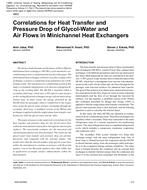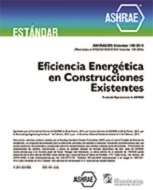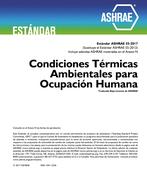Description
The thermo-hydrodynamic performance of three different minichannel heat exchangers (MCHEs) of an automotive airconditioning system is studied and discussed in this paper. The minichannel heat exchanger, a kind of cross-flow compact heat exchanger, is used as a component of an automotive air-conditioning system. The automotive air-conditioning system in this study is a standard refrigeration cycle that uses refrigerant R- 134a as the working fluid. The MCHE is installed within a secondary fluid loop, which uses a 50% glycol-water mixture as the cooling fluid and exchanges energy with the main refrigeration loop. In other words, the energy absorbed by the MCHE from the passenger cabin is transferred to the evaporator using the glycol-water mixture circulating through the secondary fluid loop. A modified version of the Wilson plot technique is applied to find the single-phase heat transfer coefficients for both the glycol-water and air sides.
This paper proposes semi-empirical correlations for the heat transfer and pressure drop for the glycol-water flow within the minichannels and airflow through the louvered fin surfaces. The uncertainty estimates for the measured and calculated parameters are also presented. The results for the glycol-water heat transfer and pressure drop are plotted, discussed, and compared with the relevant studies. The results show that the Nusselt number of the glycol-water flow within the minichannels continue to increase with Reynolds number, even at low Reynolds numbers (less than 1000), due to application of unique surface enhancements within the minichannels.
Citation: ASHRAE Trans. vol. 111, pt. 2, paper no. 4803, p. 213-224
Product Details
- Published:
- 2005
- File Size:
- 1 file , 6.8 MB
- Product Code(s):
- D-27008




